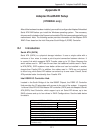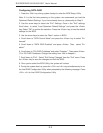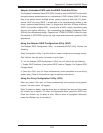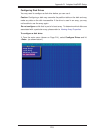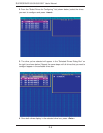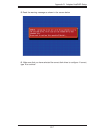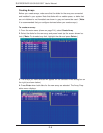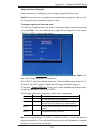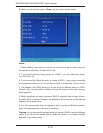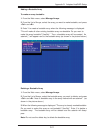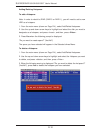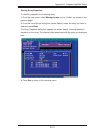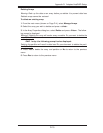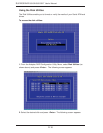
Appendix D: Adaptec HostRAID Setup
D-9
Assigning Array Properties
Once a new array is completed, you can assign properties to the array.
Caution: Once the array is created and its properties are assigned, and you can-
not change the array properties using this utility.
To assign properties to the new array:
1. In the Array Properties menu (as shown in the screen below), select an array type
and press Enter. Only the available array types will be displayed on the screen.
(*RAID 0 or RAID 1 requires two drives.)
2. Under the item "Arrays Label", type in a label and press <Enter>. (Note: The
label shall not be more than 15 characters.)
3. For RAID 0, select the desired stripe size. (*Note: Available stripe sizes are 16,
32, and 64 KB. 64K is default. Please do not change the default setting.)
4. The item: "Create RAID via" allows you to select between the different ways
of creating methods for RAID 0 and RAID 1.
The following table gives examples of when each is appropriate.
Note: If you select Migrate for RAID 0, or Build for RAID 1, you will be asked to
select the source drive. The contents of the source drive will be preserved. However,
the data on the new drive will be lost.
Raid
Level
Create
Via
When
Appropriate
R
AID 0 Quick Init Creating a RAID 0 on new drives
R
AID 0 Migrate* Creating a RAID 0 from one new drive and
one drive with data you wish to preserve
R
AID 1 Build* Any time you wish to create a RAID 1, but especially if
you have data on one drive that you wish to preserve
R
AID 1,
R
AID 10
Clear Creating a RAID 1 or RAID 10 on new drives, or when
you want to ensure that the array contains no data after
creation.
R
AID 1,
R
AID 10
Quick
Init Fastest way to create a RAID 1 or RAID 10
Appropriate when using new drives



